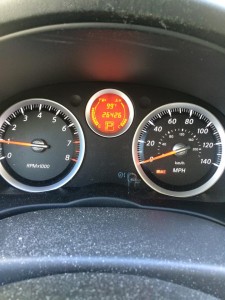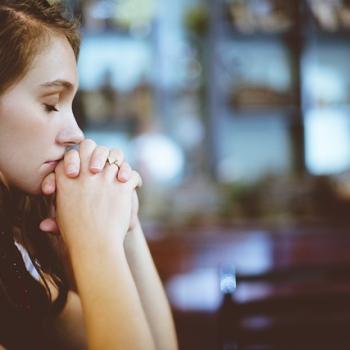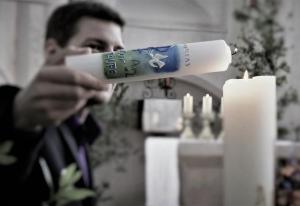 . . . it’s one or the other, and I’m laying down my money on climate change.
. . . it’s one or the other, and I’m laying down my money on climate change.
Many residents of my hometown, San Diego, California, come from somewhere else. I am a native and lifelong resident. So, let me tell you something about my hometown. We may have perpetually-losing professional sports teams, we may have a cost of living that would strain the finances of an exiled European monarch who fled the old country with a stash of Faberge eggs, but one thing we have always had that made up for all that is a year-round mild, temperate climate.
Or, we did. When I was growing up, summer temps along the coast would hover around the mid-70s, inland temps would rise about ten degrees higher. Around late-August through early October, the temps throughout the county might rise ten to fifteen degrees. Usually, no hotter than the low to mid-90s on the worst of days.
As a quick comparison, take a look at the temperatures in San Diego on May 1, 1988, a year I chose at random. (I would have been age 16.) On that day, the temperatures here were in the 60s. The page also notes that the record high temperature on that day in San Diego was 95 degrees—in 2014. And, if the photo I took of the temperature in my car today (April 30, 2015) is any indicator, we might well break that record tomorrow. (The temperature in the car obviously was higher than the temperature outside, but it was still well into the 90s today.)
How might summer temps go this year? A few years ago, in August, I was at a laundromat waiting for my laundry to dry. I happened to glance out into the parking lot and caught sight of a thermometer reading on a sign at a nearby bank. I nearly choked on my saliva when I saw that the temperature was 113 degrees. Around here, that is a temperature usually seen in the Anza-Borrego Desert, not San Diego’s East County.
With that as background, perhaps you might now understand why I am not particularly happy with Catholic controversialists who are sneering at Pope Francis’s concerns over climate change.
Since his first homily in 2013, Pope Francis has preached about the need to protect the earth and all of creation as part of a broad message on the environment. It has caused little controversy so far.
But now, as Francis prepares to deliver what is likely to be a highly influential encyclical this summer on environmental degradation and the effects of human-caused climate change on the poor, he is alarming some conservatives in the United States who are loath to see the Catholic Church reposition itself as a mighty voice in a cause they do not believe in.
Among the fiercest of the complaints lodged came from Maureen Mullarkey at First Things, who opined early this year:
Francis sullies his office by using demagogic formulations to bully the populace into reflexive climate action with no more substantive guide than theologized propaganda. Francis’s loaded abstractions—a planet “exploited by human greed,” a vague “economy of exclusion,” and that old goblin, “the god of money”—echo Reverend Wright’s “A world in need is run by white folks’ greed.” Explicit racial component is absent from Francis’ denunciations. Nevertheless, hearers know which world—First or Third?—prompts papal hostility.
I don’t have any special expertise is these matters—although, it should be noted, I probably have about as much expertise as Mullarkey, who is, by trade, a painter and a professional opinion offerer. But, in between fanning myself and wiping away sweat from my face, I have been keeping careful track of what the last few popes, over a period of more than 40 years, have been saying about man’s responsibility to the environment—and I see no reason to doubt them.
From Bl. Pope Paul VI, in his apostolic letter, Octogesima Adveniens:
Man is suddenly becoming aware that by an ill-considered exploitation of nature he risks destroying it and becoming in his turn the victim of this degradation. Not only is the material environment becoming a permanent menace—pollution and refuse, new illness and absolute destructive capacity—but the human framework is no longer under man’s control, thus creating an environment for tomorrow which may well be intolerable. This is a wide-ranging social problem which concerns the entire human family. The Christian must turn to these new perceptions in order to take on responsibility, together with the rest of men, for a destiny which from now on is shared by all (OA 21).
From St. John Paul II, in his Message for the Celebration of the World Day of Peace (1990):
In our day, there is a growing awareness that world peace is threatened not only by the arms race, regional conflicts and continued injustices among peoples and nations, but also by a lack of due respect for nature, by the plundering of natural resources and by a progressive decline in the quality of life. The sense of precariousness and insecurity that such a situation engenders is a seedbed for collective selfishness, disregard for others and dishonesty.
Faced with the widespread destruction of the environment, people everywhere are coming to understand that we cannot continue to use the goods of the earth as we have in the past. The public in general as well as political leaders are concerned about this problem, and experts from a wide range of disciplines are studying its causes. Moreover, a new ecological awareness is beginning to emerge which, rather than being downplayed, ought to be encouraged to develop into concrete programs and initiatives.
And from Pope-Emeritus Benedict XVI, who was called “the Green Pope” long before Jorge Mario Bergoglio was widely known outside of Argentina, in his encyclical, Caritas in Veritate:
The Church has a responsibility towards creation and she must assert this responsibility in the public sphere. In so doing, she must defend not only earth, water and air as gifts of creation that belong to everyone. She must above all protect mankind from self-destruction. There is need for what might be called a human ecology, correctly understood. The deterioration of nature is in fact closely connected to the culture that shapes human coexistence: when “human ecology” is respected within society, environmental ecology also benefits. Just as human virtues are interrelated, such that the weakening of one places others at risk, so the ecological system is based on respect for a plan that affects both the health of society and its good relationship with nature (CV 51).
But this concern for the environment is not a new one for the Church. Around the turn of the first millennium, St. Hildegard of Bingen said:
The high, the low, all of creation, God gives to humankind to use. If this privilege is misused, God’s justice permits creation to punish humanity.
(Image credit: Michelle Arnold, personal photo)















